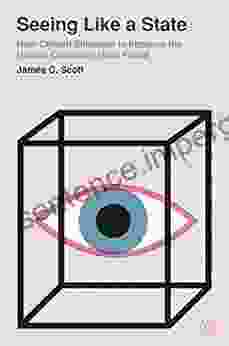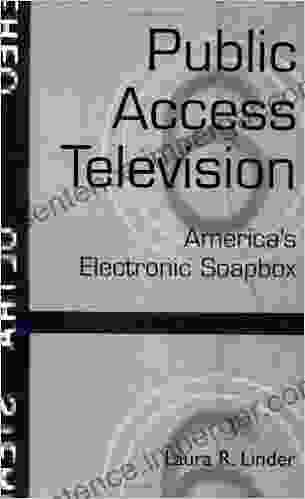Public Access Television: America's Electronic Soapbox

Public access television is a unique platform that gives a voice to the voiceless. It is a place where people can share their stories, their ideas, and their passions. Public access television is a vital part of the American media landscape, and it deserves our support.
The History of Public Access Television
Public access television has its roots in the early days of television. In the 1950s, the Federal Communications Commission (FCC) required television stations to set aside a certain amount of time for non-commercial programming. This programming was originally intended to be educational, but it soon became clear that public access television could be used for a much wider range of purposes.
In the 1960s, public access television began to be used by activists and community groups to share their messages with the public. Public access television became a platform for social change, and it played a major role in the civil rights movement and the anti-war movement.
In the 1970s, the FCC adopted rules that required cable television systems to provide access to public access channels. This led to a proliferation of public access stations across the country. Public access television became a place where people could share their stories, their ideas, and their passions.
The Importance of Public Access Television
Public access television is a vital part of the American media landscape. It is a place where people can share their stories, their ideas, and their passions. Public access television is a platform for free speech and democracy.
Public access television is also a valuable resource for communities. It can be used to provide information about local events, to promote local businesses, and to build community connections.
The Challenges Facing Public Access Television
Public access television faces a number of challenges. One challenge is funding. Public access stations rely on a variety of sources of funding, including government grants, corporate donations, and viewer contributions. However, funding for public access television is often unstable.
Another challenge facing public access television is censorship. Public access stations are often under pressure from government officials and corporate interests to censor programming that is controversial or offensive. However, public access television is protected by the First Amendment, and stations have a right to broadcast programming that is in the public interest.
The Future of Public Access Television
Public access television is facing a number of challenges, but it is also a resilient and important part of the American media landscape. Public access television is a platform for free speech and democracy, and it is a valuable resource for communities. With continued support from viewers, public access television will continue to thrive for many years to come.
How You Can Support Public Access Television
There are a number of ways that you can support public access television. You can donate money to your local public access station, or you can volunteer your time. You can also watch public access programming and share it with your friends and family.
Public access television is a vital part of the American media landscape. It is a place where people can share their stories, their ideas, and their passions. Public access television is a platform for free speech and democracy, and it deserves our support.
Do you want to contribute by writing guest posts on this blog?
Please contact us and send us a resume of previous articles that you have written.
 Book
Book Novel
Novel Page
Page Chapter
Chapter Text
Text Story
Story Genre
Genre Reader
Reader Library
Library Paperback
Paperback E-book
E-book Magazine
Magazine Newspaper
Newspaper Paragraph
Paragraph Sentence
Sentence Bookmark
Bookmark Shelf
Shelf Glossary
Glossary Bibliography
Bibliography Foreword
Foreword Preface
Preface Synopsis
Synopsis Annotation
Annotation Footnote
Footnote Manuscript
Manuscript Scroll
Scroll Codex
Codex Tome
Tome Bestseller
Bestseller Classics
Classics Library card
Library card Narrative
Narrative Biography
Biography Autobiography
Autobiography Memoir
Memoir Reference
Reference Encyclopedia
Encyclopedia James R Gillespie
James R Gillespie James Rules
James Rules James P Caher
James P Caher Jeff Klinkenberg
Jeff Klinkenberg Jean Michel Guesdon
Jean Michel Guesdon James Higdon
James Higdon James L Creighton
James L Creighton Jamie S Dreyer
Jamie S Dreyer Jason Middleton
Jason Middleton Jamie Richards
Jamie Richards Janet Mancini Billson
Janet Mancini Billson Jane Whelen Banks
Jane Whelen Banks Jazz Thornton
Jazz Thornton Jason Mazzone
Jason Mazzone Jamal Jordan
Jamal Jordan James Burke
James Burke Jeff Bennington
Jeff Bennington James Barnet
James Barnet Jane H Hill
Jane H Hill Jean Decety
Jean Decety
Light bulbAdvertise smarter! Our strategic ad space ensures maximum exposure. Reserve your spot today!

 Morris CarterPunk Rock Rebellion: Images and Stories from the 1980s Washington DC Punk...
Morris CarterPunk Rock Rebellion: Images and Stories from the 1980s Washington DC Punk...
 Dan BrownDelve into the Profound Philosophical Traditions of the Kyoto School with "An...
Dan BrownDelve into the Profound Philosophical Traditions of the Kyoto School with "An...
 Jacob FosterThe South Park Quizzes For Super Fans Only: Test Your Knowledge of the Hit...
Jacob FosterThe South Park Quizzes For Super Fans Only: Test Your Knowledge of the Hit...
 Robert BrowningSeeing Like a State: How Certain Schemes to Improve the Human Condition Have...
Robert BrowningSeeing Like a State: How Certain Schemes to Improve the Human Condition Have... Chad PriceFollow ·8.8k
Chad PriceFollow ·8.8k Forrest ReedFollow ·8.8k
Forrest ReedFollow ·8.8k Edward ReedFollow ·3.1k
Edward ReedFollow ·3.1k Greg CoxFollow ·17k
Greg CoxFollow ·17k John MiltonFollow ·7.1k
John MiltonFollow ·7.1k Bret MitchellFollow ·4.4k
Bret MitchellFollow ·4.4k Dan BellFollow ·8.7k
Dan BellFollow ·8.7k Eric NelsonFollow ·18.1k
Eric NelsonFollow ·18.1k

 Jacob Foster
Jacob FosterPrinciples and Persons: The Legacy of Derek Parfit
Derek Parfit's 1984 book,...

 Leo Mitchell
Leo MitchellPartners For Life: Raise Support For Your Missionary Work...
Are you a missionary or ministry leader...

 Blake Kennedy
Blake KennedyOn Desperate Ground: A Gripping Account of World War II's...
Hampton Sides' "On...

 Duane Kelly
Duane KellyCriminal Minds Sociopaths Serial Killers And Other...
In the realm of criminology,...

 Craig Blair
Craig BlairHome Repair: The Ultimate Guide to Fix, Maintain, and...
Welcome to the...

 Elmer Powell
Elmer PowellThe Organic Grower Guide to Mycorrhizae Science for...
Unlock the Secrets of Soil...




